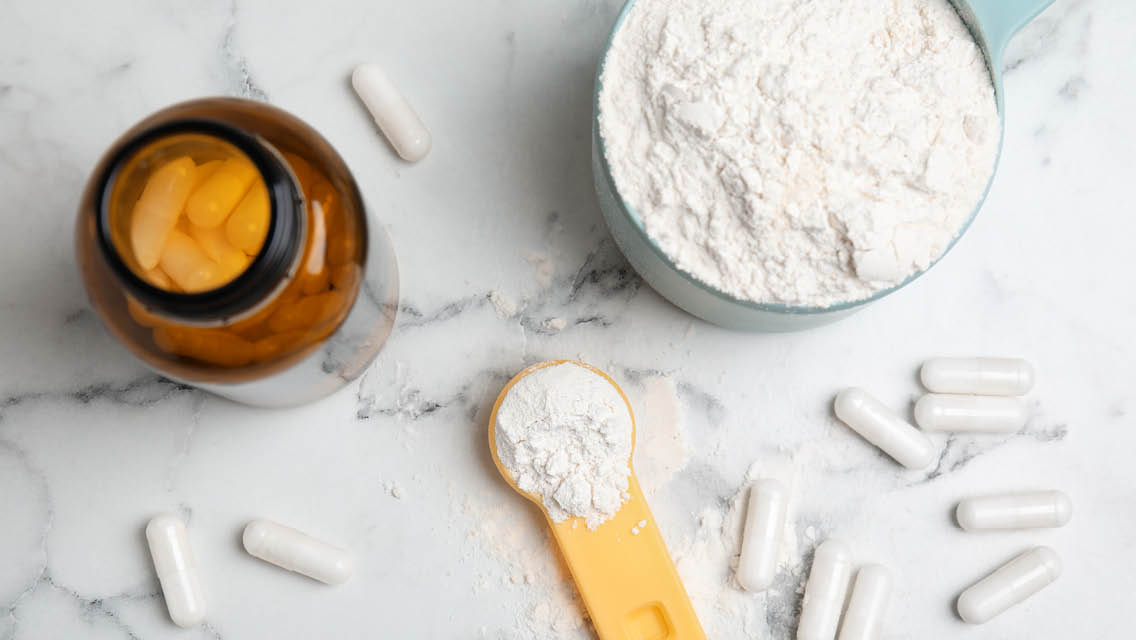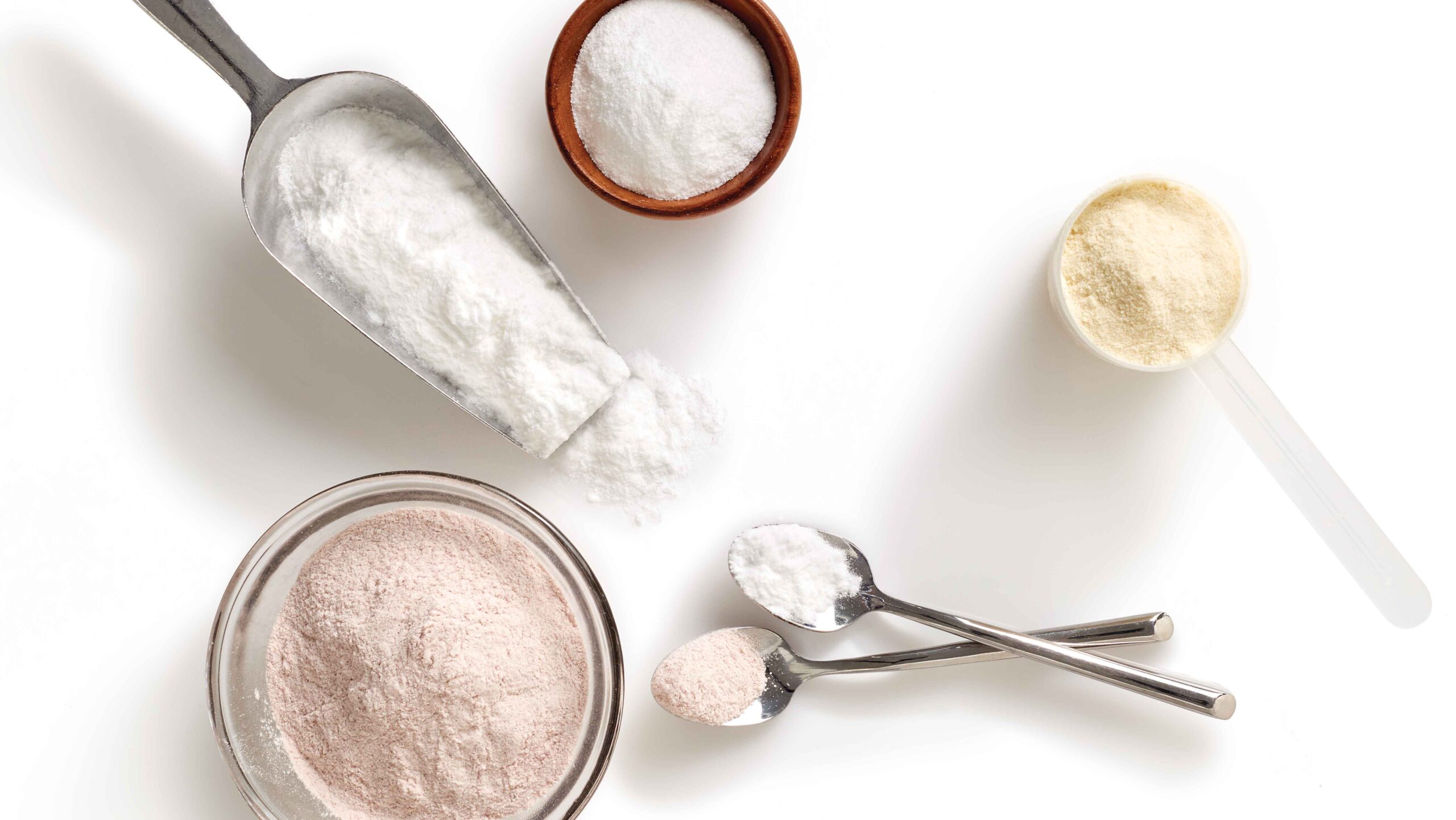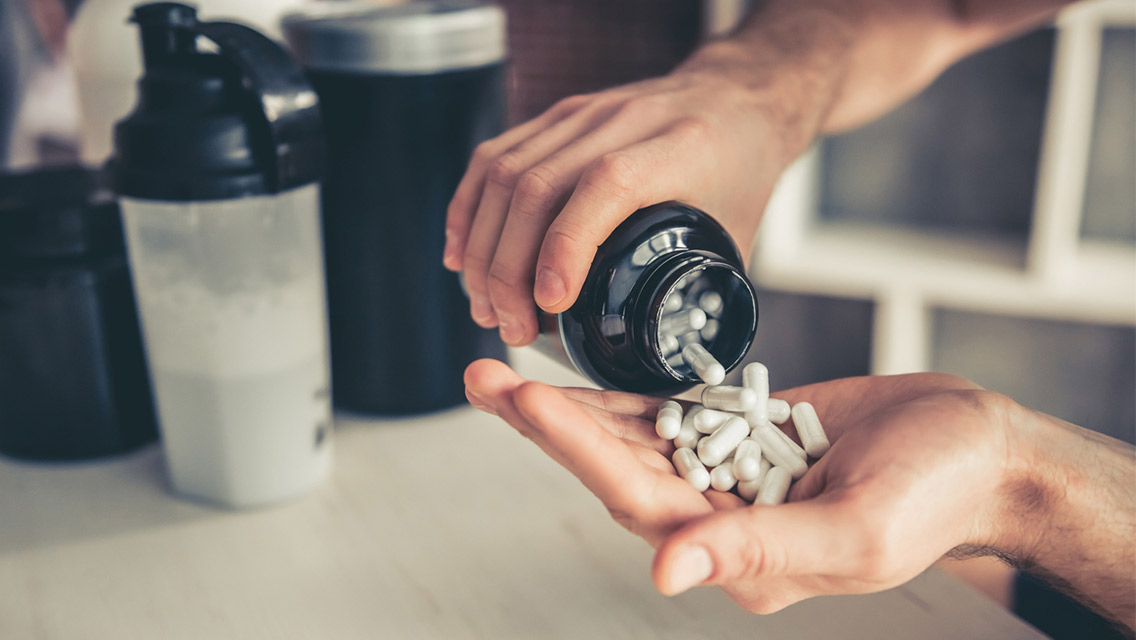Creatine is an amino acid notable for its muscle-supporting benefits. Unlike essential amino acids (EAAs), creatine is not considered essential — your body produces it on its own. Specifically, creatine is created primarily in the kidneys and completed in the liver, then stored in the muscle as phosphocreatine, which is used as energy during intense exercise.
So, you might be wondering: What’s the big deal about creatine if the body can just make it?
Well, the body naturally makes about 1 gram of creatine per day. While this may be sufficient for some people, the amount falls short of the 3 to 5 grams that studies suggest are necessary to maintain adequate muscle stores, among other benefits. The nutrient has been shown to support athletic performance, particularly during activities that require rapid recovery, as well as muscle recovery and growth. It can also help counteract age-related declines in muscle mass and bone density.
As an amino acid, creatine can be found in protein-rich foods — but not in all protein sources or in sufficient amounts. It’s only found naturally in animal sources of protein, and in relatively small quantities. (For instance, a pound of uncooked beef contains about 1 gram of creatine.) Going the whole-foods route for creatine raises financial, environmental, and palatability concerns.
That’s where supplementation can be useful: Creatine monohydrate is considered one of the lowest-risk supplements with the highest rewards, says Anika Christ, RD, a Life Time registered dietitian, sports nutritionist, and personal trainer. One scoop of the dissolvable powder can deliver 5 grams of creatine, depending on the brand.
You could benefit most from supplementation if you are actively trying to build muscle; if you’re vegan or vegetarian, or you don’t eat much animal protein; or if you are postmenopausal. (For more on creatine, check out “The Health Benefits of Creatine.”)
Tips to Optimize Creatine Intake
- Seafood and red meat are good food sources of creatine, but they still fall short of providing enough for you to obtain many of the benefits, notes Christ.
- Supplements are a safe way to support your creatine intake and enjoy its muscle-building benefits, she adds. Look for creatine monohydrate, one of the most popular and well-studied sports supplements available, and aim for 5 grams daily.






This Post Has 0 Comments